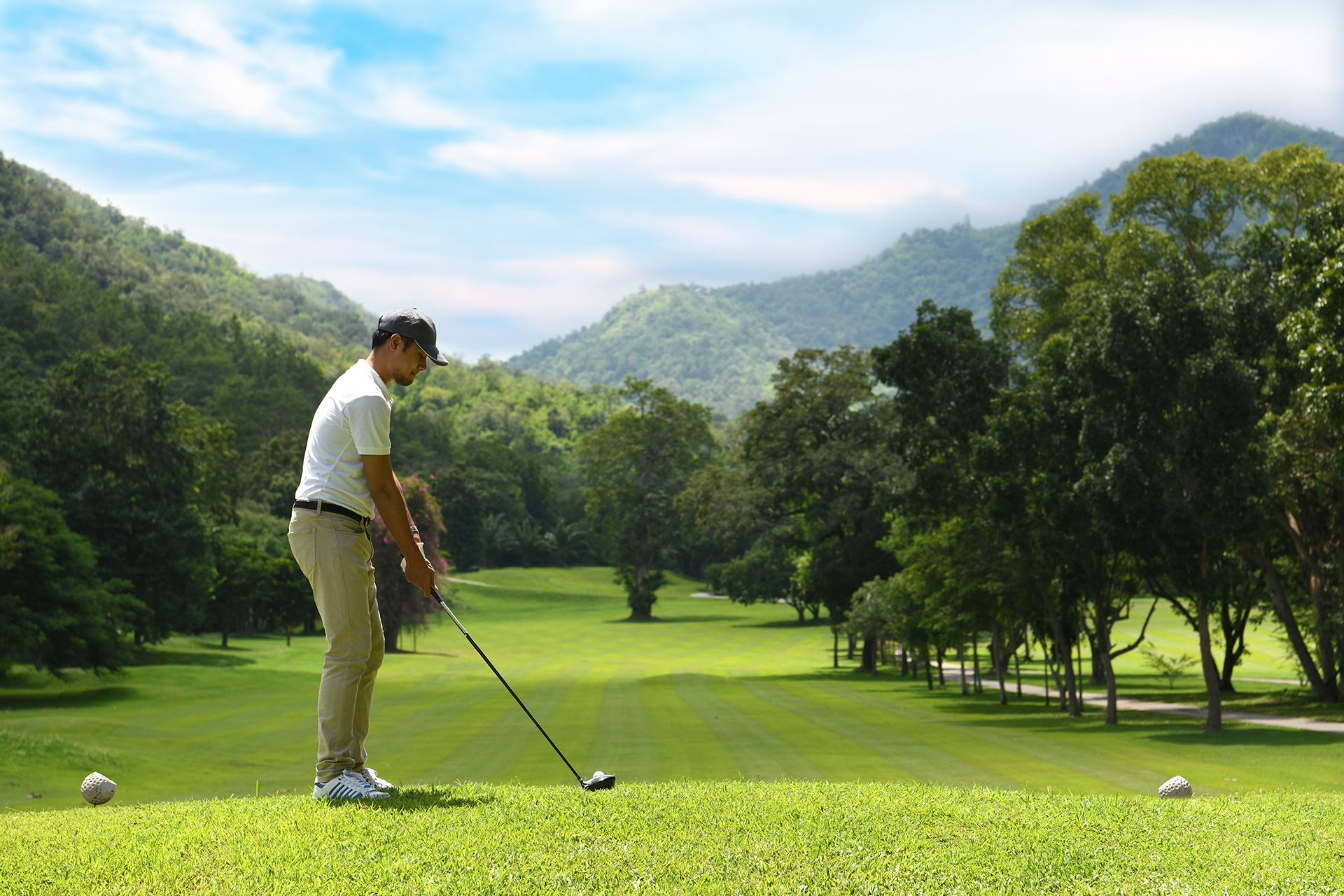|
Getting your Trinity Audio player ready...
|
What Is Golfer’s Elbow (Medial Epicondylitis)
Despite the name, golfers’ elbow affects more than just golfers. This condition, also known as medial epicondylitis, causes pain and inflammation on the inner side of the elbow where the forearm tendons attach to the medial epicondyle, which protects the ulnar nerve on your humerus. It’s caused by repetitive wrist flexion or forearm pronation, which is common in golf, tennis, and weightlifting. However, it’s also important to note that it can affect those who perform repetitive manual tasks. It’s essential to receive an early diagnosis for golfer’s elbow so you can receive targeted treatment and begin the path to recovery and long-term relief.
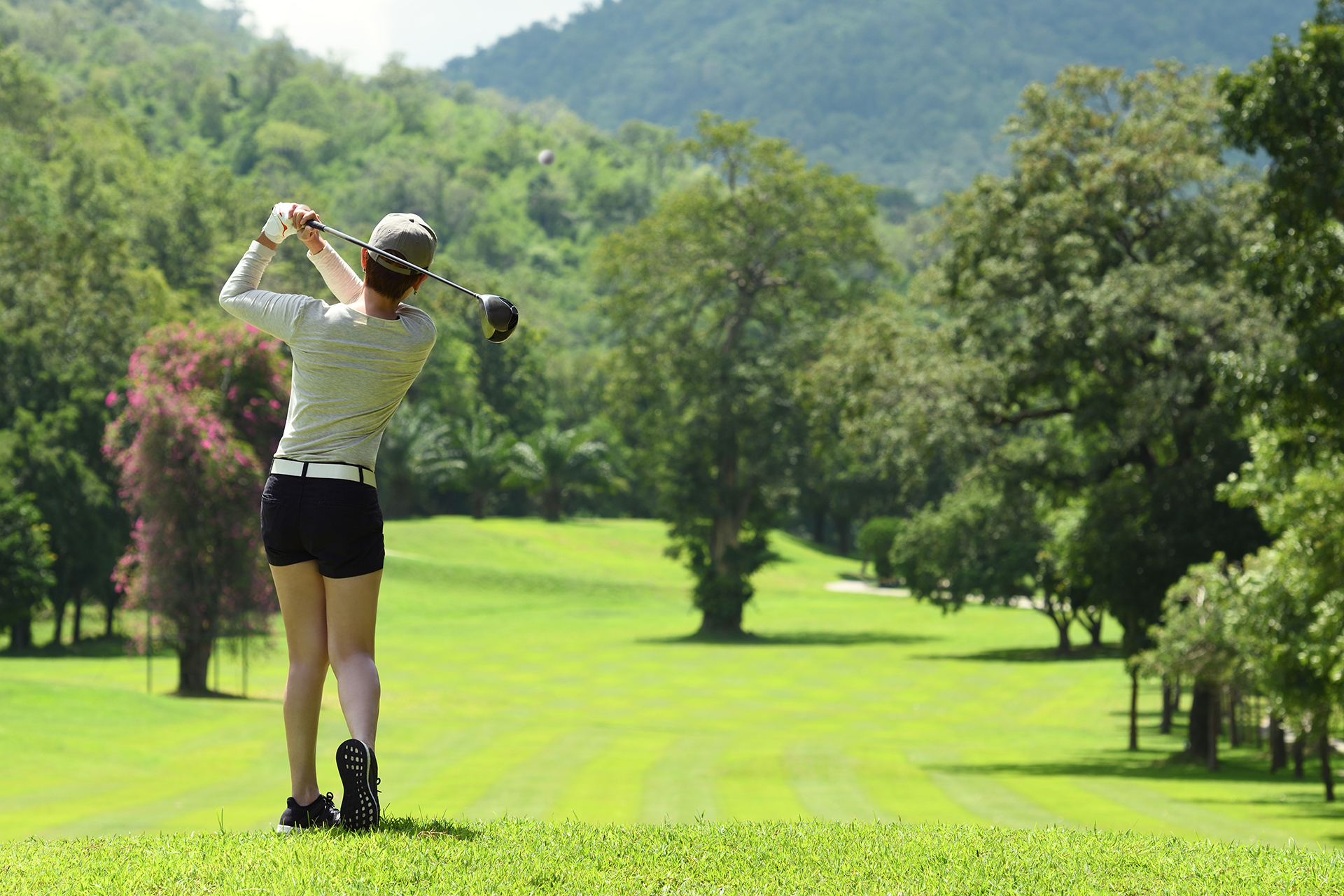
What Causes Golfer’s Elbow?
Golfer’s elbow develops gradually due to overuse or poor biomechanics. Repetitive strain leads to microtears in the tendon tissue, especially in the tendons that connect the forearm to the elbow. This condition causes inflammation in this area, resulting in pain often centralized around the bony bump inside the elbow. Poor technique, inadequate conditioning, or insufficient warm-up routines increase the risk of injury.
Occupations and hobbies that involve repetitive wrist and finger motions can also trigger the condition. This includes not just golf and tennis, but also activities like typing, carpentry, and even frequent smartphone use. Symptoms include inner elbow pain, stiffness, weakness in the wrist or hand, and sometimes numbness radiating to the fingers, especially the ring and little fingers. Chronic golfer’s elbow can last for months or even years.
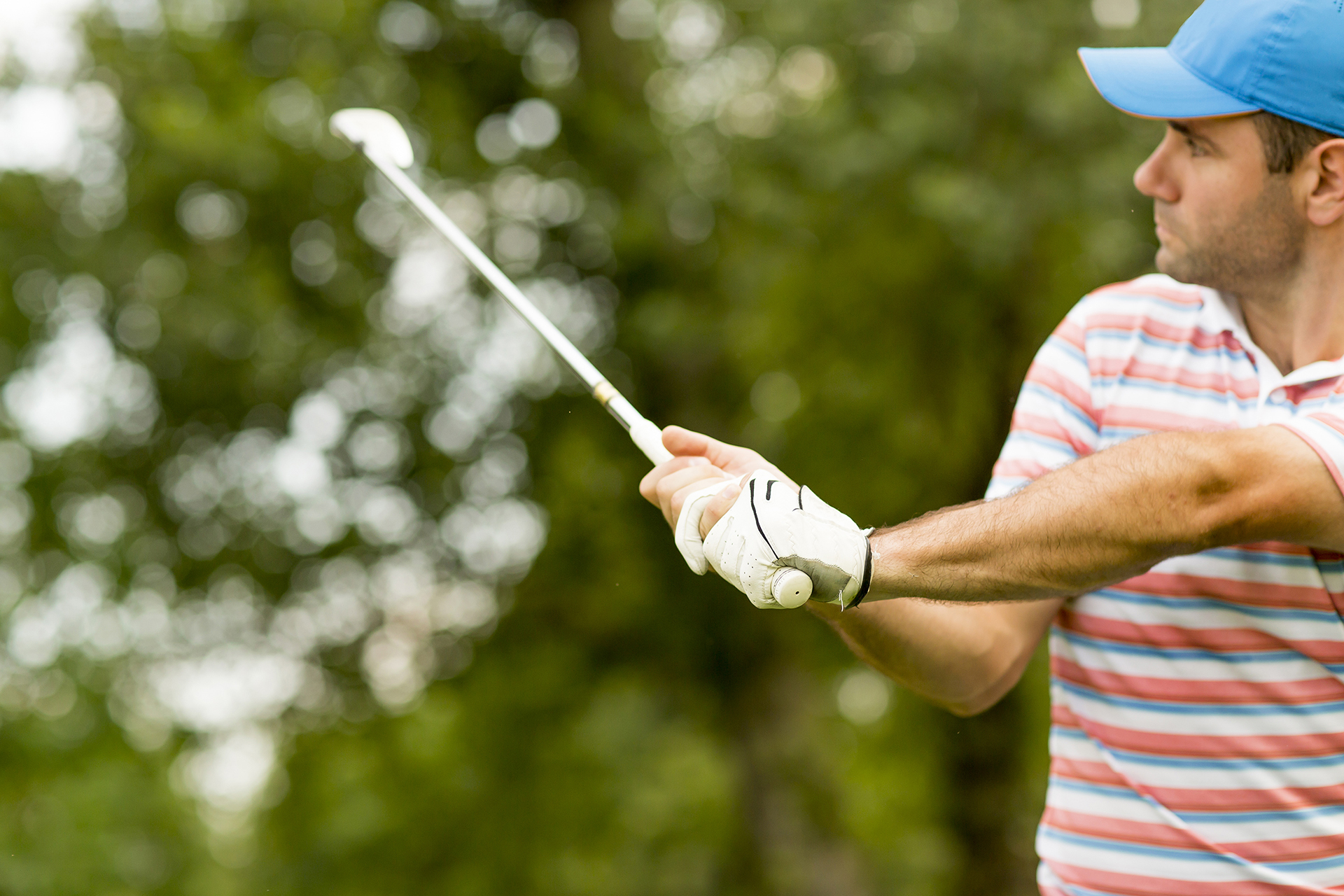
Why Physiotherapy Is Key in Golfer’s Elbow Treatment
Regarding golfer’s elbow treatment, physiotherapy is key for symptom relief and long-term recovery. Unlike temporary fixes like painkillers or corticosteroid injections, physiotherapy addresses the root cause of the injury, preventing future recurrence.
A physiotherapist will first conduct a thorough assessment to determine the severity of the condition and contributing biomechanical factors. This may include assessing wrist, elbow and shoulder mechanics, grip technique and overall posture. They will build a comprehensive strategy to manage your golfer’s elbow from there.
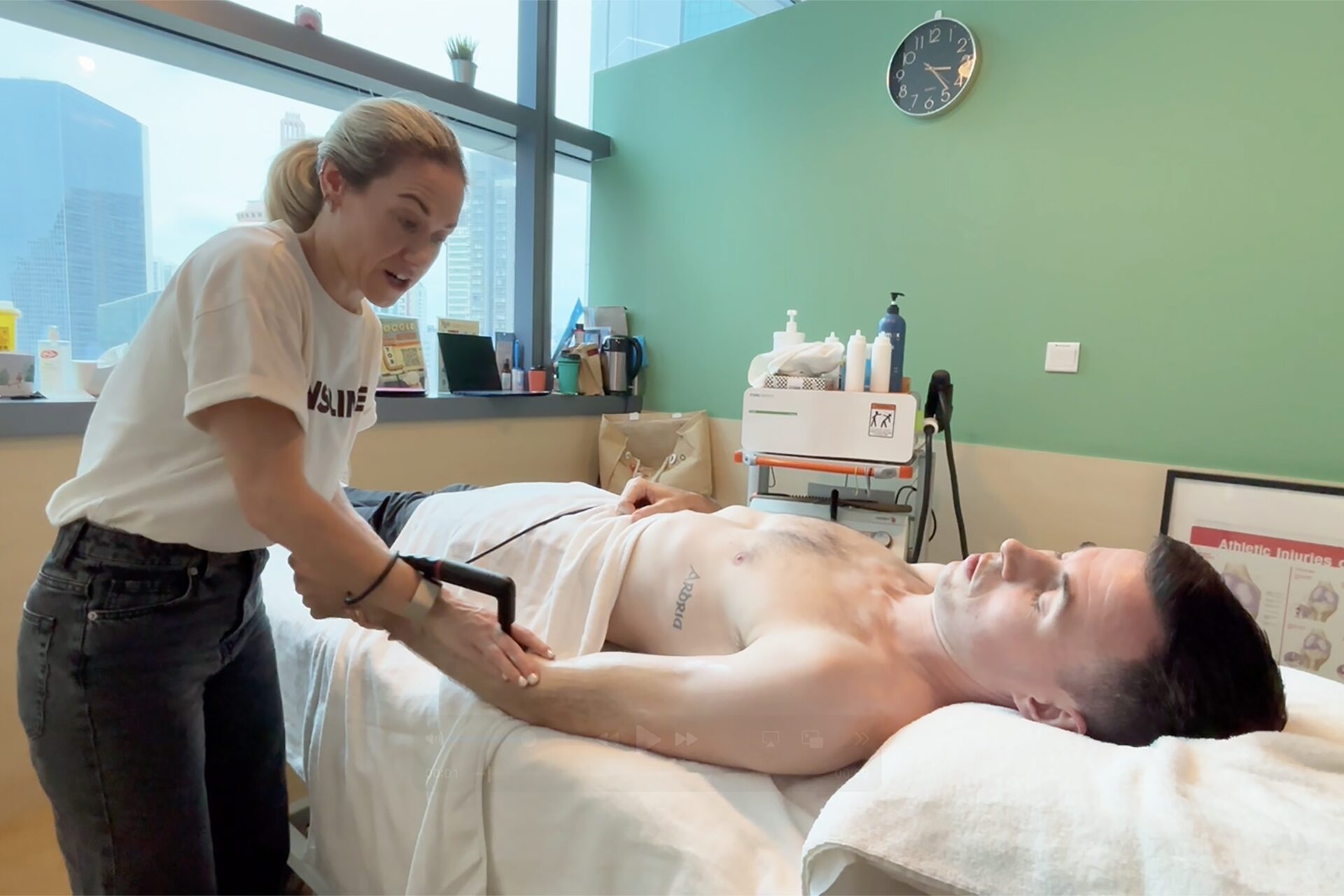
Manual Therapy and Exercises
Manual therapy is one of the mainstays of golfer’s elbow treatment at HelloPhysio. Through soft tissue mobilization, joint mobilization, and myofascial release, manual therapy reduces tension and improves mobility in the affected tissues.
This is accompanied by a customized exercise program that targets strength and flexibility deficits. Eccentric wrist flexor strengthening is particularly effective in promoting tendon healing for golfer’s elbow treatment. Using free weights with proper technique is crucial to maintaining stability and preventing strain. Progressive loading of the flexor-pronator muscle group helps rebuild tissue integrity, improve resilience against future strain, and enhance tissue repair.
Lastly, stretching exercises help maintain range of motion and relieve tension. If neural irritation is contributing to the symptoms, these exercises may include wrist flexor and extensor stretches and nerve gliding techniques.
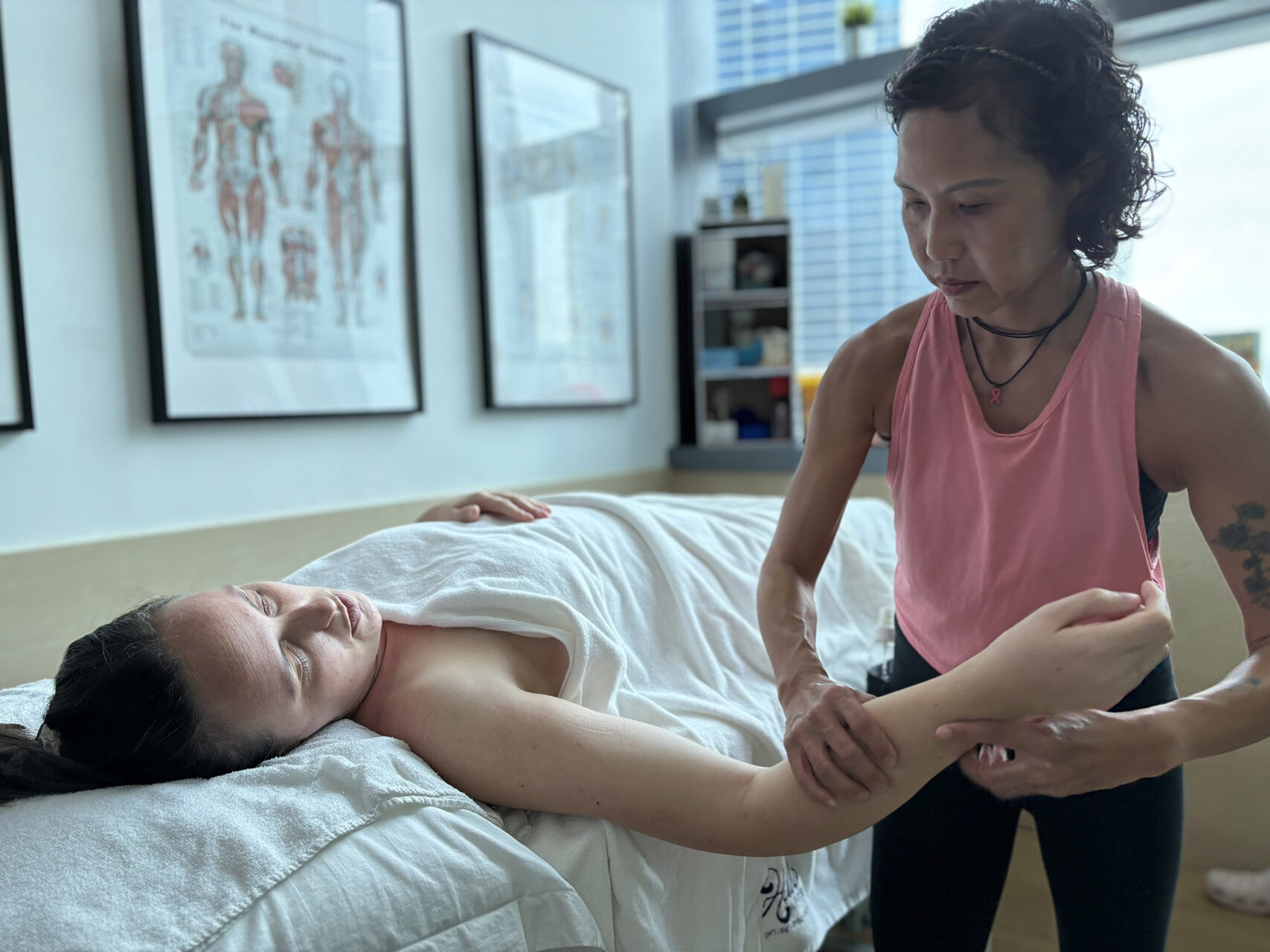
Adjunct Therapies: Shockwave and INDIBA® Activ Therapies
HelloPhysio often incorporates advanced adjunct therapies in golfer’s elbow treatment plans to speed up recovery. Two of the most effective modalities are Shockwave Therapy and INDIBA® Activ.
Shockwave Therapy delivers high-energy acoustic waves to the affected tendon, stimulating a healing response by promoting blood flow, breaking down fibrotic tissue, and encouraging collagen production. This is particularly useful for chronic cases of golfer’s elbow that have not responded well to conventional treatment.
INDIBA Activ uses a unique 448 kHz radiofrequency current to stimulate cellular repair and reduce inflammation at a deep tissue level. It enhances blood flow, promotes tissue oxygenation, and restores normal cell function, making it ideal for both acute and chronic cases of medial epicondylitis. INDIBA Activ also influences nerve endings, which can aid in pain relief.
Both these non-invasive therapies provide short-term relief while promoting long-term healing. They are used with manual therapy and exercises to create a comprehensive approach to faster and more complete recovery.
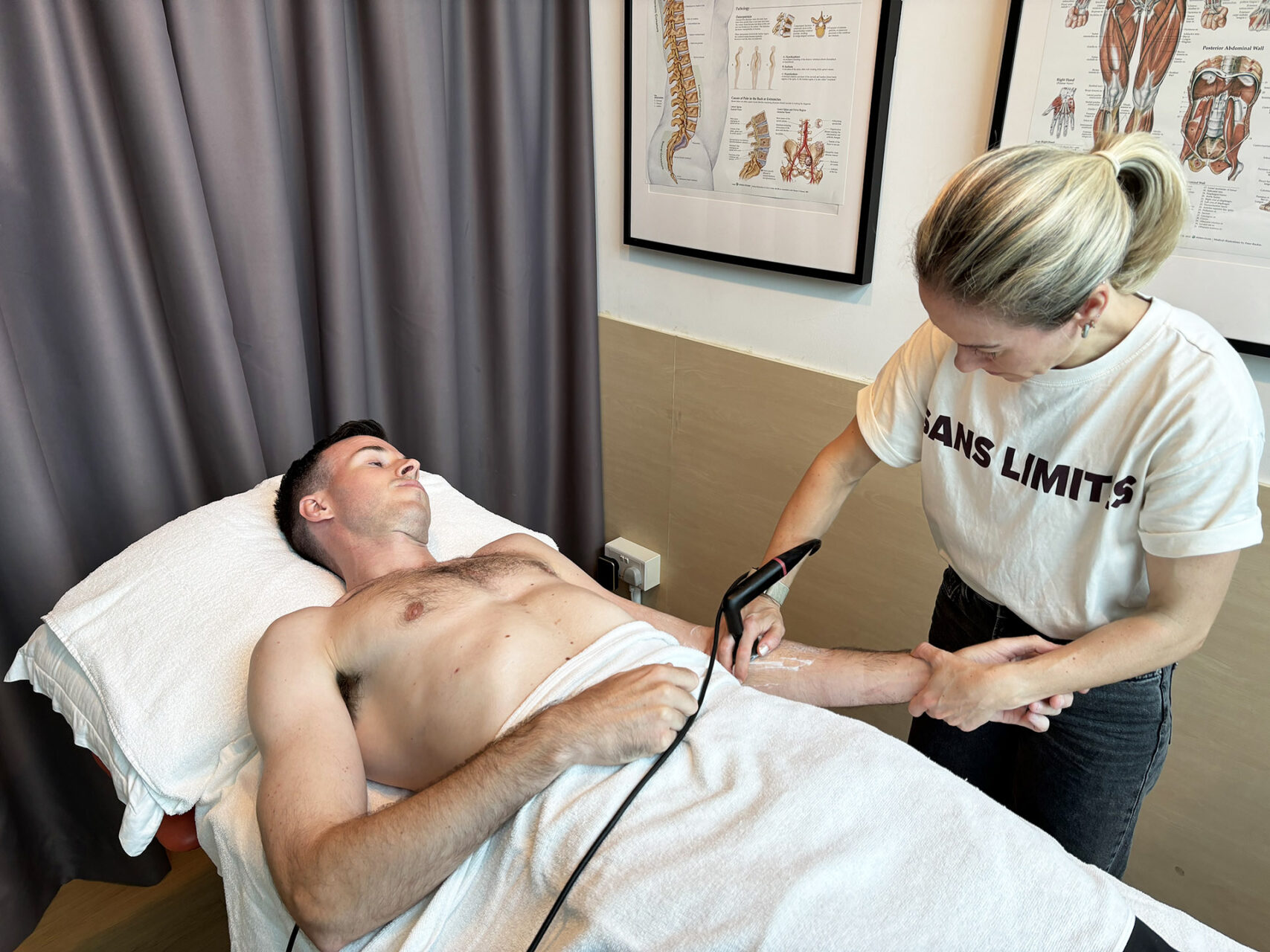
Education and Ergonomic Advice
Effective golfer’s elbow treatment isn’t just about managing symptoms but preventing recurrence. That’s why education and ergonomic advice are part of the treatment journey at HelloPhysio.
Education can help prevent golfer’s elbow by teaching proper techniques and exercises. Your physiotherapist will work with you to identify contributing factors such as poor posture, incorrect technique, or suboptimal equipment. For athletes, this may involve analysing swing mechanics; for office workers, it could be optimising their desk and keyboard setup. Ergonomic advice is crucial for athletes, as it helps maintain proper form and reduces the risk of injury.
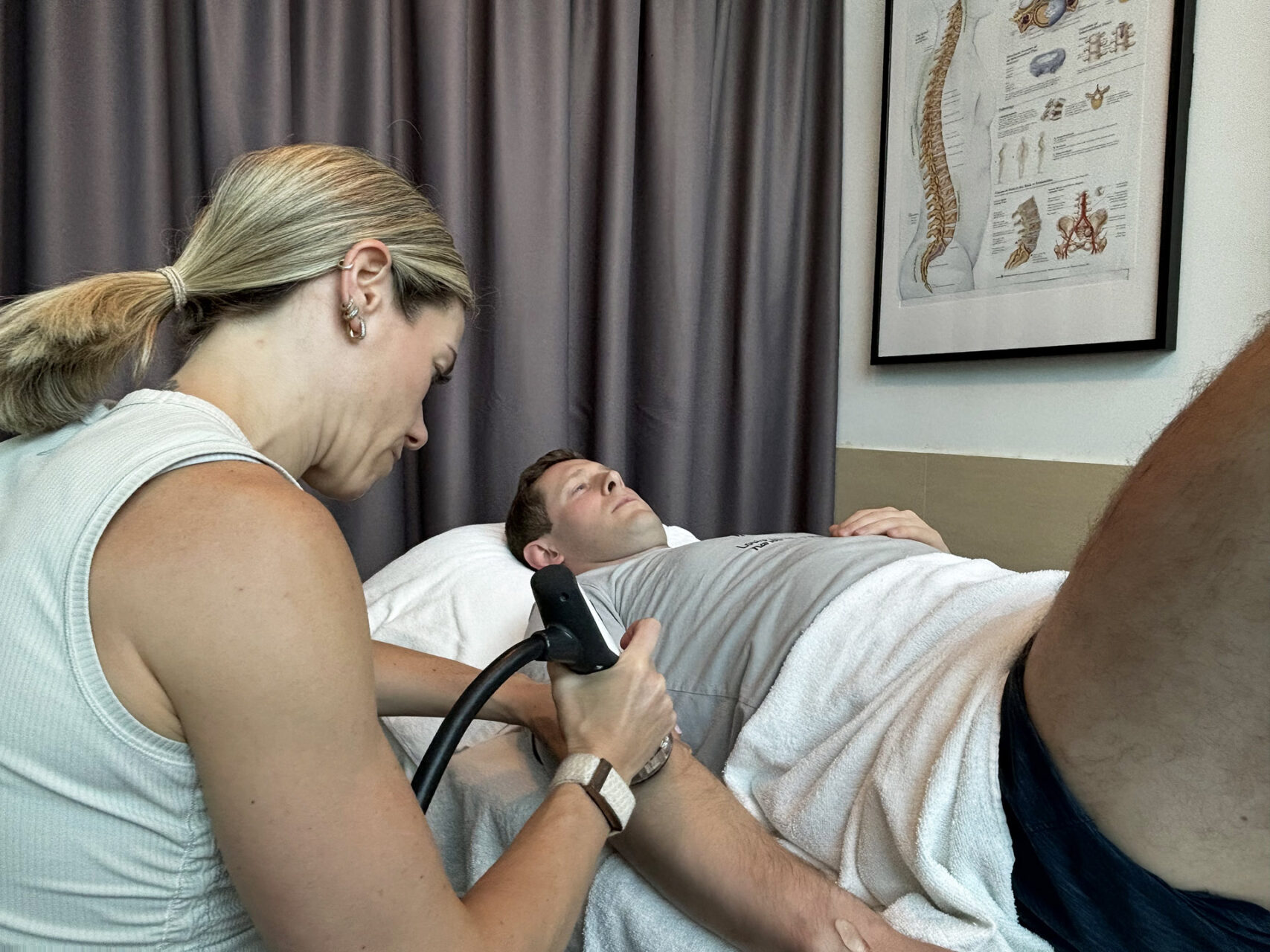
When to Seek Help
Many people ignore the early signs of golfer’s elbow, hoping the pain will disappear. However, early intervention makes treatment more effective and recovery faster. If you’re experiencing persistent inner elbow pain that worsens with activity or doesn’t improve with rest, it’s time to see a physiotherapist.
Delaying treatment can lead to worsening symptoms, reduced grip strength, and chronic dysfunction, making it harder to return to normal activities or sports. If the injury is left completely untreated and ignored, surgery may be necessary to repair damaged tendons and tissues.
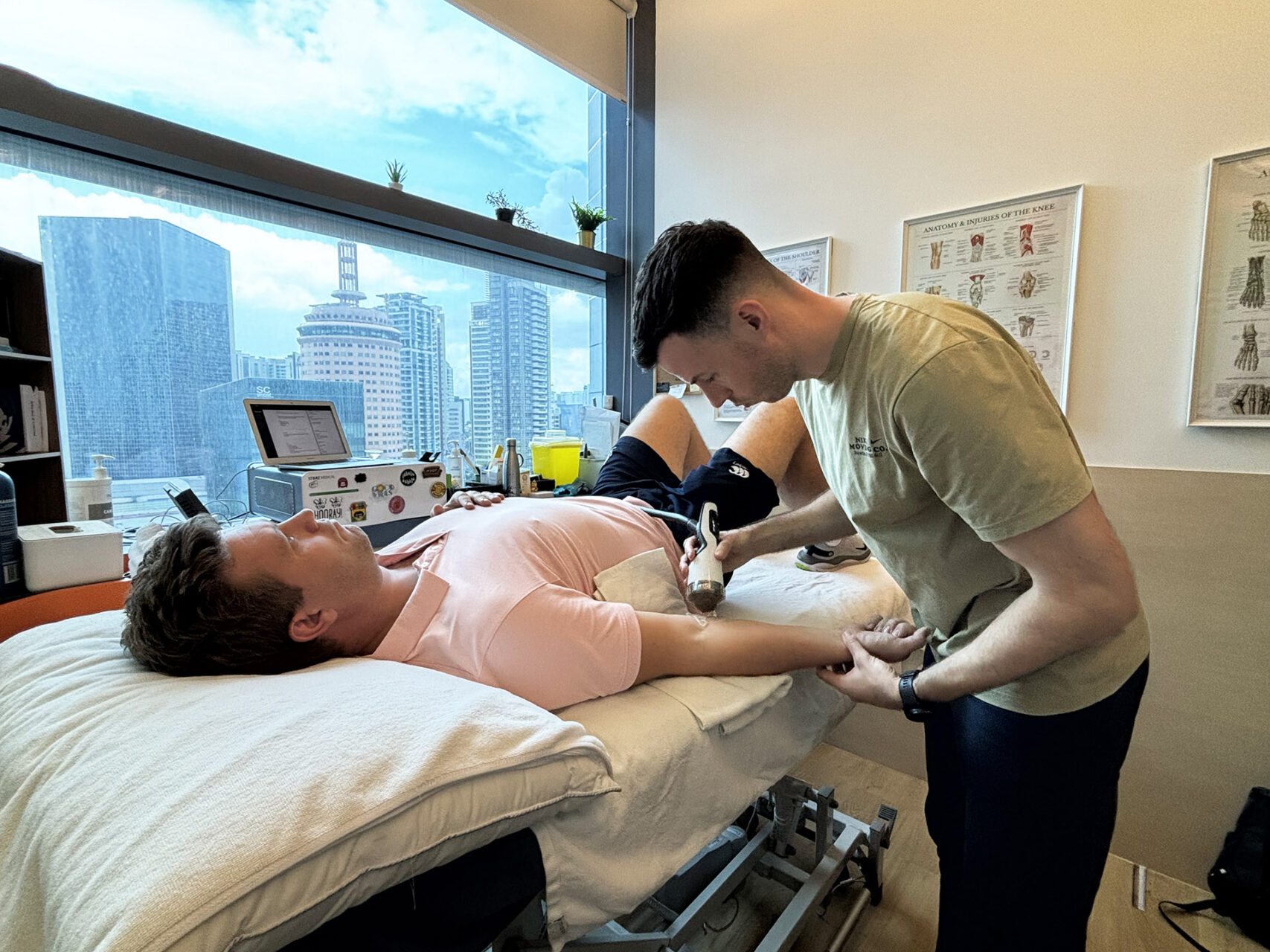
Your Recovery Starts Here
Golfer’s elbow can be frustrating and limiting, but with the proper care, recovery is entirely possible. HelloPhysio combines clinical expertise with cutting-edge technology to deliver personalized golfer’s elbow treatment plans that support long-term healing and resilience.
From manual therapy and corrective exercise to Shockwave Therapy and INDIBA Activ, our integrated approach ensures every aspect of your recovery is covered. Contact HelloPhysio today to book an appointment and start your journey to long-term relief from golfer’s elbow.

